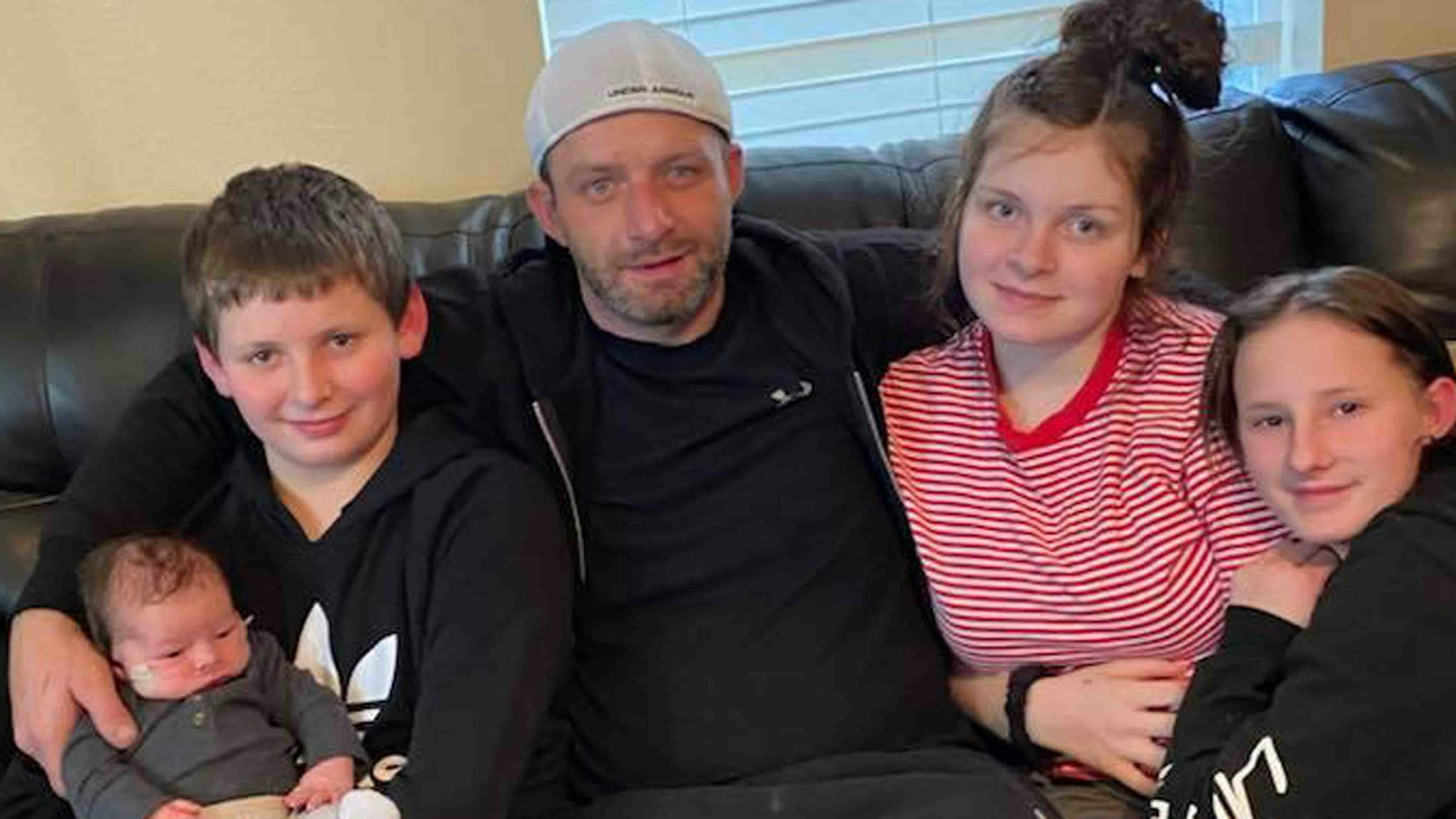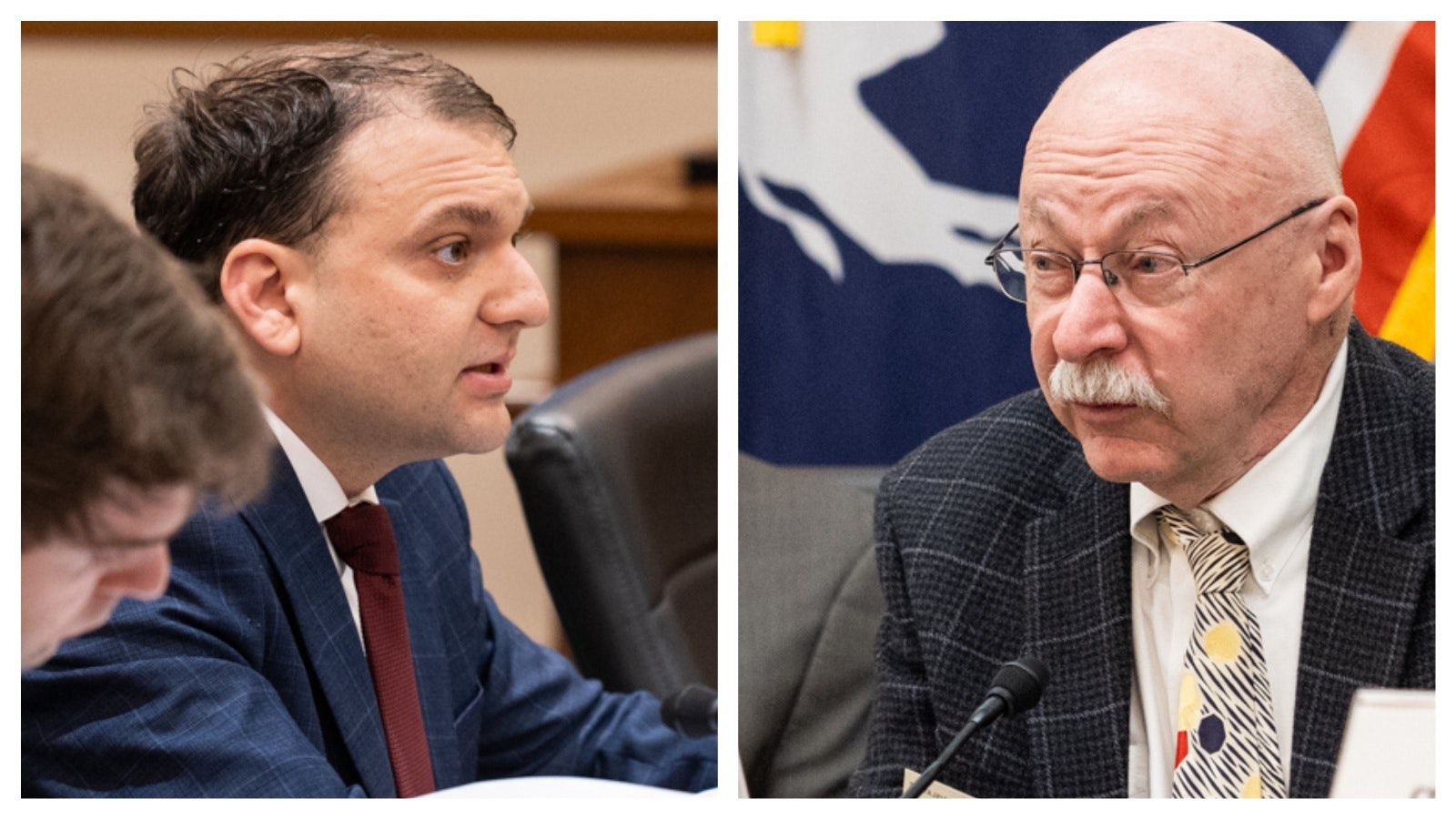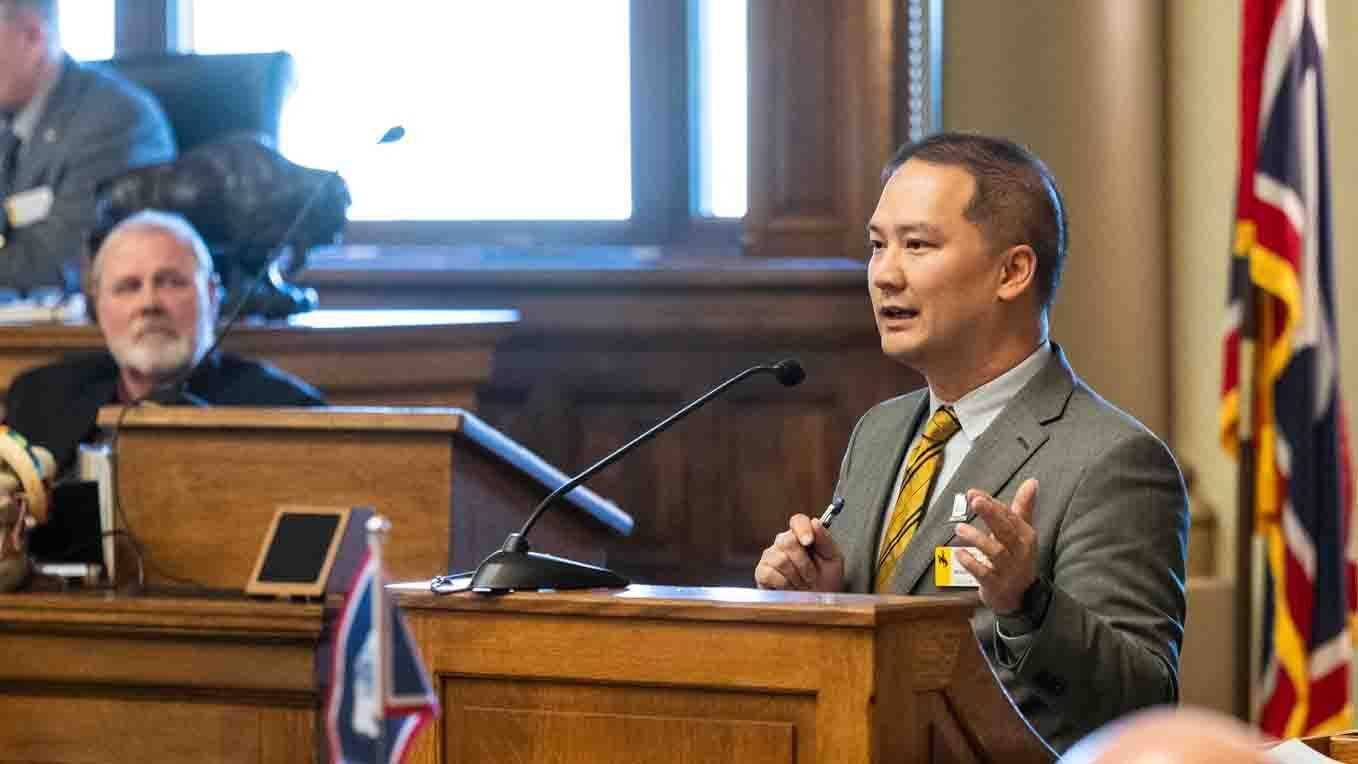Ryan Schroeder’s family knew something was wrong when a week went by, and nobody had heard from him. The last they knew, he’d been dropped off at a convenience store in the Denver area in late June 2021.
Right away, they felt something was wrong. Despite his struggle with drug addiction, the 36-year-old Casper man and father kept in near-daily contact with his mom and daughter, even when his life went off the rails.
Sheri Schroeder, Ryan’s cousin, said the family tried to report him missing to the Casper Police Department but were met with initial opposition given his track record and the fact that he had been dropped off in Colorado.
“They were kind of dismissive of it because he had a drug problem,” Schroeder said.
The family did their own searching without luck. They were at a loss for what to do next. Schroeder reached out to her long-time friend and neighbor, Desirée Tinoco, administrator of the Facebook group, Missing People of Wyoming, which has since become a nonprofit.
Typically, Tinoco would not post a missing person without the report first being verified by law enforcement but made the exception in this case because she knew the family. Within hours of posting on July 6, 2021, the post went viral, Sheri Schroeder said.
“It just blew up overnight,” Schroeder said. “I couldn’t believe it got so much attention.”
Many in Colorado also saw the post, prompting a girl at a marijuana dispensary in Fort Collins to contact Schroeder after recognizing Ryan’s distinct tattoos. Schroeder then attempted to contact the Fort Collins police, who told her they couldn’t investigate because he was from Wyoming and instructed her to contact Casper police.
She did, and this time, police took the tip and reported Ryan missing as an active investigation got underway.
Ryan’s deceased body was later discovered in rural Natrona County roughly two months later. His killer, Justin Armando Marquez, who had been with Ryan in Colorado, was later arrested and found guilty of second-degree murder and is currently serving 70 years to life in a Wyoming prison.
Wyoming families in support of proposed legislation
As it turned out, there was nothing the police could have done to save her cousin, but the whole experience would have been less traumatic for she and her family, Schroeder said, had there been protocols for how and when to report a person missing.
She was surprised by how difficult it was to initially report her cousin missing, and she automatically assumed protocols for reporting missing adults were already in place.]
Currently, Wyoming is one of six states not to have missing person protocols in place and one of 10 that doesn’t require law enforcement to report missing adults to the National Crime Information Center (NCIC) database that’s accessible to all law enforcement agencies.
That may soon change, however, if a proposed bill now before the Wyoming House gets signed into law this legislative session.
If passed, Senate File 114 would require credible missing person reports to be taken by Wyoming law enforcement within eight hours of being reported missing, define jurisdictional boundaries for reporting missing adults and require law enforcement agencies to report these cases to both state and national databases among other measures.
So far, the bill has received no opposition, unanimously clearing a third vote in the Wyoming Senate last week and passing unanimously through the Senate Judiciary Committee on Friday.
The proposed law also has the full support of Gov. Mark Gordon’s office, according to Kit Wendtland, tribal relations policy advisor for Gordon, who spoke on the bill’s behalf in both chambers.
Also in full support is the Wyoming Association of Sheriffs and Chiefs of Police (WASCOP), according to Allen Thompson, the organization’s executive director.
Speaking on behalf of her family, Schroeder said they’re very encouraged by the proposed legislation as are other Wyoming families, including the Ritthalers of Upton, whose 16-year-old granddaughter had gone missing prior to her murder by a South Dakota teen who had lured her out of state.
Schroeder said it’s hard to articulate the feelings of sorrow and grief when a loved one goes missing. Although her family is heartbroken over the loss of her cousin, she said there’s a complicated relief in at least knowing what happened to him.
Not everyone gets that, she noted.
“Until you’ve gone through it, there’s no way to articulate what it means when you can’t locate a loved one,” she said. “I’m hopeful that this bill will help other families.”
People Behind The Bill
Big Horn County Sheriff Ken Blackburn feels the same way. He was instrumental in drumming up support for the bill among fellow law enforcement. He sees a real need for guard rails when it comes to how, when and where a missing adult is reported.
He’s worked with Desirée Tinoco of Missing People of Wyoming on various missing person cases over the past two years and said he sees the value in working with groups like Tinoco’s.
Most recently, Blackburn solicited her help in finding a 20-year-old Lovell woman, who had disappeared last July but was shortly thereafter found safely in Billings.
The young woman was found just in the nick of time, Blackburn told Cowboy State Daily, before being exploited by “bonafide cartel members,” who had targeted her in downtown Billings under the guise of helping her.
Blackburn credits the save to effective communication between law enforcement as well as the power of social media that allowed word to be spread widely and quickly, leading to the Lovell woman being found.
When it comes to missing people, time is of the essence and collaboration really helps, Blackburn said.
“I realized the good work that Desiree is doing and recognize we need to be able to cross communicate to get ahead of a situation,” Blackburn said. “We need to be able to communicate and unite for the common good.”
Tinoco’s name came up frequently in legislative discussions of the bill this month, with Cara Chambers, director of the Division of Victim Services at the Wyoming Attorney General’s Office, on Friday calling Tinoco the “passion” behind the bill during the Senate Judiciary Committee.
In fact, Blackburn credits Tinoco for getting the legislative ball rolling after she raised concerns to him and others in law enforcement about some of her firsthand difficulties in getting some people reported missing to police, especially those who are known drug users, the homeless and others with criminal pasts or mental health issues.
Blackburn believes implementing missing person protocols is a benefit to both law enforcement and loved ones of the missing as well as outside groups, including sharing cases on both state and national missing person databases.
“I see this as an opportunity to build bridges, not barriers, between the public and law enforcement,” he said.

Wyoming’s Voice For The Missing
This isn’t Tinoco’s first stab at implementing policies to help the missing. Along with starting her Facebook group, which is now a nonprofit, she was also instrumental in working with the Wyoming Division of Criminal Investigation in creating an easy-to-access missing person database.
Tinoco, who drove to Cheyenne in January to speak on behalf of the bill before the Wyoming House, said she is encouraged by the overwhelming support thus far and hopes it sails over this last hurdle before being signed into law in July.
Though she doesn’t relish these public appearances, she’s getting more used to them, she joked, since she began her group six years ago when she had no idea of what she was doing. Though she was intimidated to approach law enforcement and legislators with her ideas, she said it’s been much easier than she anticipated given their full support of her initiatives.
“At first I thought no one would take me seriously because I don’t have a college degree or any formal training in missing people or other credentials and I was just this stay-at-home mom who started a Facebook group,” she said. “But then I realized if not me, then who?”
She was particularly inspired by the song, “Complainer” by Cold War Kids, that encourages people to be the change agent for a better world, instead of just sitting around and complaining about it.
“That really resonated with me,” Tinoco said. “I think people forget how much they’re capable of doing, and it’s real easy to sit around complaining about it.”
For her, this means giving law enforcement specific guidelines for handling missing person cases and removing potential liabilities in past situations where cases were not handled properly, which has been a big concern of hers since she first started her group six years ago.
“I always go back to the fact that at some point there’s going to be someone who takes up legal action against the state or police department, and they’d have a good case on their hands,” she said. “When there are no guidelines or rails, it’s easy for things to go off the track.”
The protocols also will make it easier for families to report the missing, which is a big relief when people are in crisis and struggling to find resources to help.
“All around, it’s a positive step in the right direction,” she said, noting that there’s still more work to be done.
Jen Kocher can be reached at jen@cowboystatedaily.com.





